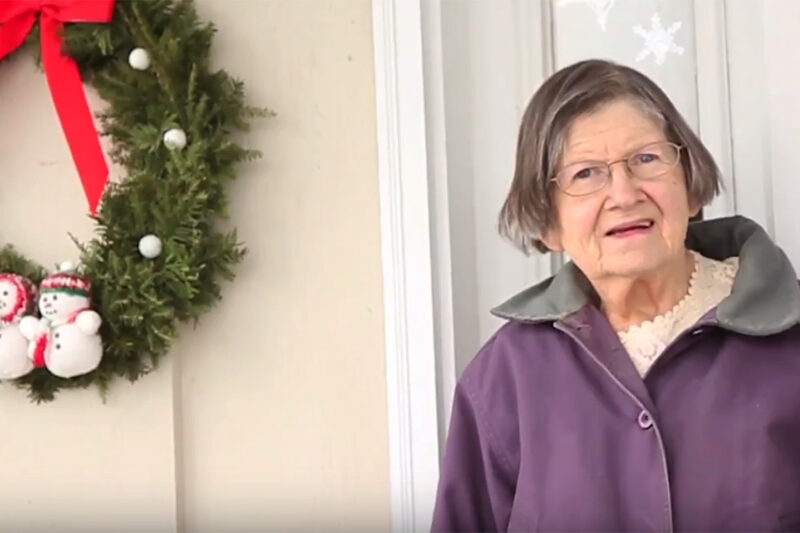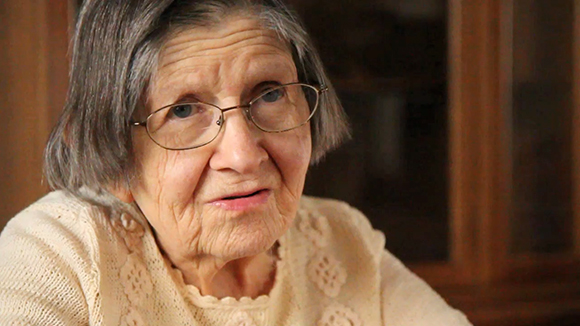Ruthelle Frank, ACLU Plaintiff, Friend, and Voting Rights Champion, Passes Away at 89. The Fight for Every American’s Vote to be Counted Continues.


Attorneys from the American Civil Liberties Union first met Ruthelle Frank in 2011, when the then-84-year-old was fed up with her home state of Wisconsin’s attempts to infringe upon her right to vote. This month, we received the sad news that Ruthelle had passed away at the age of 89.
Ruthelle cared deeply about community participation and leading by example. In fact, for 18 years she served as an elected trustee of the Village of Brokaw, Wisconsin, where she was born and would live her entire life. She was fond of saying “If you don't use it, you lose it,” and this rang especially true when it came to voting. Ruthelle voted in every election since 1948, the year in which President Truman signed the Marshall Plan and the minimum wage stood at just 40 cents.
But in 2011, Wisconsin enacted one of the harshest voter ID laws in the country. Ruthelle’s longstanding participation in America’s democracy was suddenly at stake.
The truth is that we can safeguard our elections and protect people’s right to vote, but Wisconsin’s law does neither.
Wisconsin’s law not only mandated a photo ID to vote, but it limited that ID to a few official kinds and mandated that residents had to go to the DMV for their “free” IDs. Many Wisconsinites — including hundreds of thousands of registered voters — did not have these official state IDs. And Wisconsin did not make it easy to obtain them.
For Ruthelle, the battle with state bureaucracy began when the DMV told her she needed a birth certificate to get the “free” ID. Ruthelle was born in her home in 1927, and she had never even seen her birth certificate. The state refused to accept her baptismal certificate, social security card, or marriage license as alternatives.
Ruthelle tried to get a birth certificate — which cost $20 — but officials told her that her maiden name was misspelled in state records. In order to correct the misspelling, Ruthelle would need to go through a legal proceeding that could cost combined fees upwards of $200. Even then, Ruthelle didn’t know if this would be the end of it.


%3Ciframe%20allowfullscreen%3D%22%22%20frameborder%3D%220%22%20height%3D%22326%22%20src%3D%22https%3A%2F%2Fwww.youtube.com%2Fembed%2FAXFTCcJfN5Q%3Fautoplay%3D1%26version%3D3%22%20thumb%3D%22%2Ffiles%2Fthumb_ruthelle-580x326.jpg%22%20width%3D%22580%22%3E%3C%2Fiframe%3E
Privacy statement. This embed will serve content from youtube.com.
More importantly, Ruthelle deeply disagreed with the principle of a state forcing a citizen to pay to participate in American democracy. Knowing it was a step in the wrong direction for her state, Ruthelle decided to fight back and become the lead plaintiff in our lawsuit against Wisconsin’s voter ID law.
Ruthelle was part of the long battle to keep Wisconsin from infringing on the voting rights of so many across the state. In December 2011, we filed our lawsuit challenging the law. In a major victory in 2014, a federal district court ruled that Wisconsin’s voter ID law was unconstitutional and struck it down entirely.
In September 2014, however, a setback occurred. The Seventh Circuit Court of Appeals reversed that ruling and tried to put the law into effect immediately. Fortunately, we succeeded in convincing the U.S. Supreme Court to block the law from taking effect in the November 2014 midterm elections.
Even though the law then went into effect, our lawsuit — Ruthelle’s lawsuit — continued. Among other problems, we called attention to the fact that Wisconsin did not include Veterans’ Administration ID cards or 2-year technical college ID cards as among the forms of acceptable ID for voting. The state eventually backed off and agreed to accept these forms of IDs, but it took years of litigation to get there.
And in another victory, the district court in our case ruled in 2016 that voters who have trouble obtaining identification in Wisconsin can vote by affidavit. Unfortunately, Wisconsin appealed that decision to the court of appeals, and while it is pending, the court blocked the affidavit option.
Throughout every legal twist and turn, Ruthelle remained committed to the fight. Everyone has a stake in ensuring that our elections are honest, fair, and accessible. Ruthelle knew this, and she did her very best to fight back against misguided laws which confuse restricted access for a more secure process. The truth is that we can safeguard our elections and protect people’s right to vote, but Wisconsin’s law does neither.
More importantly, Ruthelle deeply disagreed with the principle of a state forcing a citizen to pay to participate in American democracy.
By sharing her story, Ruthelle had an incredible impact on both our work and the people around her, including many who did not personally know her. Among the memories shared online in the guestbook of Ruthelle’s obituary was, “I did not personally know Ruthelle Frank but knew of her by newspaper accounts about her determination to vote. She is an example to us all especially those who sit out elections. Thank you, Ruthelle, for being a great patriot.”
Ruthelle did not seek any sort of special treatment. She simply wanted everyone to have the right to vote. We at the ACLU thank Ruthelle for fighting alongside us and for setting a true example of what it means to participate in our democracy.

